The Government Office has just issued a press release on the direction and administration of the Government and the Prime Minister on April 8, 2025.
Detailed regulations on a number of articles and measures to organize and guide the implementation of the Law on Promulgation of Legal Documents
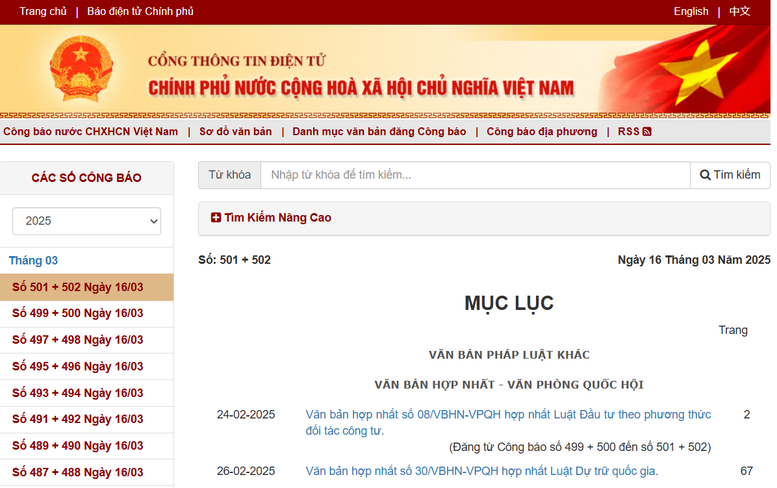
The Government has issued Decree No. 78/2025/ND-CP detailing a number of articles and measures to organize and guide the implementation of the Law on Promulgation of Legal Documents.
This Decree details Article 7, Article 31, Clause 1, Article 32, Article 34, Clause 1, Article 36, Article 69, Clauses 4 and 5, Article 70 of the Law on Promulgation of Legal Documents (hereinafter referred to as the Law) and measures to organize and guide the implementation of the Law on the development of laws, resolutions of the National Assembly , ordinances and resolutions of the National Assembly Standing Committee submitted by the Government; giving opinions on laws, resolutions of the National Assembly , ordinances and resolutions of the National Assembly Standing Committee not submitted by the Government; procedures for the development and promulgation of legal documents of the Government, the Prime Minister, Ministers, Heads of ministerial-level agencies, and local authorities; publishing documents on the electronic official gazette, and managing the development and promulgation of legal documents.
Consulting during the process of drafting legal documents
Decree 78/2025/ND-CP stipulates: The agency in charge of drafting the document is responsible for posting the project or draft document on its portal or website in accordance with the provisions of the Law and this Decree, except in cases where the content of the legal document is within the scope of state secrets.
The agency proposing the policy and the agency in charge of drafting are responsible for: Collecting opinions from directly affected subjects, relevant agencies, organizations, individuals, experts, and scientists on policies, projects, and draft legal documents according to the provisions of the Law and this Decree; determining the content of the consultation appropriate to each subject requiring consultation, and clearly stating the address for receiving comments.
Consulting with subjects directly affected by policies, projects, and draft legal documents is carried out directly or through representative organizations in accordance with the provisions of the law on socio-political organizations and the law on associations.
Forms of collecting opinions include: Collecting opinions in writing; through conferences, mass media or other suitable forms; through posting projects, draft legal documents on portals or electronic information pages.
The agency proposing the policy and the agency in charge of drafting are responsible for synthesizing, studying, absorbing, and fully explaining comments; posting the summary of comments, absorbing, and explaining comments on the portal and electronic information page of their agency no later than 25 days from the end of the comment period; the posting period is at least 30 days.
Policy communication, draft legal documents
According to Decree 78/2025/ND-CP, communication is carried out from the time of collecting opinions from subjects directly affected by policies and draft legal documents until the state agency or competent person approves or promulgates them.
Except for legal documents with content falling within the scope of state secrets, the communication content includes: The necessity of promulgating policies and legal documents; basic content (including new content, amendments, and supplements to policies and draft legal documents); other content (if any).
The policy proposal agency and the drafting agency shall develop communication content according to regulations to ensure brevity and ease of understanding for posting on the agency's portal or website and organize communication in an appropriate form.
Legal documents must be published in full text on the electronic gazette.
The Decree clearly states that legal documents must be published in full, fully, promptly and accurately on the electronic gazette as prescribed in Article 9 of the Law.
Do not post documents in the list of state secrets according to the provisions of the law on state secrets; international treaties have provisions on non-posting.
Documents published in the electronic gazette of the Socialist Republic of Vietnam include:
a) Legal documents issued by central state agencies;
b) Documents abolishing or suspending the implementation of illegal legal documents;
c) Document announcing legal documents that have ceased to be effective in whole or in part; list of documents and regulations that have ceased to be effective;
d) International treaties that have come into effect for the Socialist Republic of Vietnam;
d) Documents correcting legal documents issued by central state agencies;
e) Other documents issued by central government agencies. The publication of documents specified in this point shall be decided by the issuing agency.
Documents published in the provincial electronic gazette include:
a) Legal documents issued by the People's Council, People's Committee at provincial level, local authorities in special administrative-economic units, and district level;
b) Documents issued by agencies or individuals with authority to handle illegal legal documents;
c) Documents correcting legal documents issued by the People's Council, People's Committee at provincial level, local authorities in special administrative-economic units, and district level;
d) Document announcing legal documents that have ceased to be effective in whole or in part; list of documents that have ceased to be effective;
d) Other documents issued by the People's Council, People's Committee at provincial level, local authorities in special administrative-economic units, and district level. The publication of documents specified in this point shall be decided by the issuing agency.
Send documents to be published in the electronic gazette
The agency issuing the document is responsible for sending the original document for publication along with the electronic version within the time limit specified in Article 9 of the Law; the publication of international treaties in the Official Gazette shall comply with the Law on International Treaties.
Documents issued under simplified procedures must be sent to the Government Office or the Office of the Provincial People's Committee on the same day of promulgation or signing for publication in the electronic gazette.
The agency issuing the document is responsible for not sending, sending late, sending incomplete or inaccurate documents for publication in the electronic gazette.
Deadline for posting documents on electronic gazette
Within 15 days from the date of receipt of the document, the Government Office is responsible for posting the document in the electronic gazette of the Socialist Republic of Vietnam;
Within 07 days from the date of receipt of the document, the Office of the Provincial People's Committee is responsible for posting the document on the provincial electronic gazette;
Documents issued under simplified procedures must be posted on the electronic gazette immediately upon receipt of the document.
Regulations on authority and procedures for establishing public ownership of assets and handling of assets for which public ownership has been established
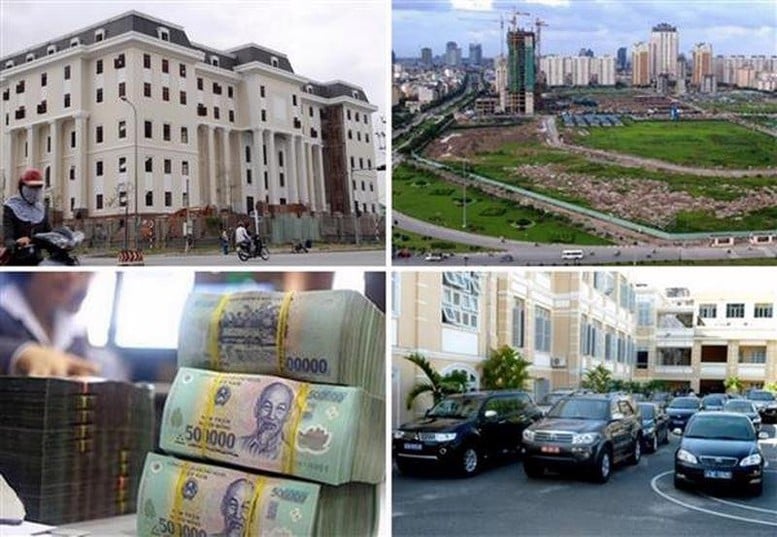
The Government has issued Decree No. 77/2025/ND-CP stipulating the authority and procedures for establishing public ownership of assets and handling assets for which public ownership has been established.
Assets whose ownership rights are established by the entire people as prescribed in this Decree include:
1. Property confiscated according to the provisions of law, including: a) Confiscated exhibits and means of administrative violations; b) Case evidence, other property confiscated according to the provisions of criminal law, criminal procedure law (case evidence, property of convicted persons confiscated).
2. Ownerless real estate includes: a) Real estate whose owner cannot be identified according to the provisions of civil law; b) Real estate whose owner has renounced ownership of the property according to the provisions of civil law.
3. Lost or abandoned property includes: Lost or abandoned property whose owner cannot be identified or whose owner does not come to claim it according to the provisions of civil law.
4. Property that is an inheritance without an heir, including: a) Property without an heir as prescribed in Article 622 of the Civil Code; b) Property for which the statute of limitations for requesting division of inheritance has expired from the time of inheritance opening but there is no possessor as prescribed in Point b, Clause 1, Article 623 of the Civil Code; c) The ownership of real estate when one of the joint owners of the real estate renounces his ownership or when this person dies without an heir as prescribed in Clause 4, Article 218 of the Civil Code.
5. Assets are stockpiled goods kept in port, warehouse and yard areas within customs operation areas according to customs law (stockpiled goods within customs operation areas).
6. Assets whose ownership is voluntarily transferred by the owner to the State of Vietnam and are not subject to the cases specified in points d, đ, e, g, i and k, Clause 2, Clause 3 and Clause 4, Article 1 of this Decree.
The transfer of property ownership to the State of Vietnam is carried out through ministries, ministerial-level agencies, government agencies, other central agencies (ministries, central agencies) or local authorities. In cases where the transfer has specifically identified the receiving agency, organization or unit; if the receiving agency, organization or unit is under central management, it is determined to be transferred through a ministry or central agency; if the receiving agency, organization or unit is under local management, it is determined to be transferred through a local authority. For property transferred by foreign experts, contractors or consultants to the State of Vietnam without specifically identifying the receiving agency, organization or unit, if the project is centrally managed, it is determined to be transferred through a ministry or central agency; if the project is locally managed, it is determined to be transferred through a local authority.
7. Assets transferred by foreign-invested enterprises are not compensated to the Vietnamese State according to the commitment after the end of the operating period.
8. Assets invested under the public-private partnership method are transferred to the Vietnamese State under project contracts, including: Assets transferred to the Vietnamese State under Build-Operate-Transfer (BOT) contracts, Build-Transfer-Operate (BTO) contracts, Build-Transfer-Lease (BTL) contracts, and Build-Lease-Transfer (BLT) contracts.
9. Buried, buried, or sunken assets include: Assets discovered or found on the mainland, islands, and seas of the Socialist Republic of Vietnam with sovereignty and jurisdiction, but at the time of discovery or finding, there is no or the owner cannot be identified according to the provisions of law.
The establishment of public ownership of property is carried out publicly and transparently.
The Decree also clearly states the principles for establishing public ownership of assets and managing and handling assets for which public ownership is established.
Accordingly, the establishment of the people's ownership of assets as prescribed in this Decree must be made in writing; ensuring the order and procedures prescribed by law on the basis of protecting the interests of the State and respecting the legitimate rights and interests of relevant organizations and individuals. In case the agency or person with the authority to decide on the establishment of the people's ownership is also the agency or person with the authority to decide on the approval of the asset disposal plan and the unit in charge of asset management is also the agency responsible for establishing the asset disposal plan, the establishment of the people's ownership of assets shall be carried out simultaneously with the approval of the asset disposal plan through the Decision of the competent person.
The establishment of public ownership of assets and the handling of assets for which public ownership has been established must be carried out publicly and transparently; all violations must be handled promptly and strictly in accordance with the provisions of law.
The handling of assets with established public ownership rights shall be made into a plan, and the competent authority or person shall decide and approve the plan for handling assets. The plan for handling assets with established public ownership rights and the decision approving the plan for handling assets with established public ownership rights shall be applied according to the unified form prescribed in this Decree.
In case the public asset management agency is the unit in charge of asset management, the order and procedures for preparing and submitting the asset handling plan to the competent authority or person for consideration and approval shall comply with the regulations applicable to the unit in charge of asset management.
The handling of assets that are confiscated exhibits, means of administrative violations, or assets that are evidence of a case, or assets of a convicted person that are confiscated, shall be carried out for assets of each case. In case the value of assets of a case is less than 100 million VND, the unit in charge of asset management may consolidate assets of many cases for one handling within 06 months from the date of the decision approving the asset handling plan (except for assets that are goods and items specified in Point a, Clause 1, Article 15, Point a, Point b, Clause 1, Article 16 of this Decree).
In case the assets must be appraised, tested, inspected, and consulted with specialized agencies before proposing, formulating a handling plan or deciding on handling, the time for appraisal, inspection, testing, and consulting shall not be included in the time limit for preparing documents, submission, and approval of the asset handling plan as prescribed in this Decree.
For assets whose ownership is voluntarily transferred by the owner to the State of Vietnam as prescribed in Clause 6, Article 3 of this Decree through a donation contract or other ownership transfer contract as prescribed in Article 223 of the Civil Code and other relevant legal provisions (if any), it is not necessary to carry out procedures to establish the entire people's ownership of the assets as prescribed in this Decree...
Amending and supplementing a number of articles of Decree No. 70/2015/ND-CP dated September 1, 2015 of the Government detailing and guiding the implementation of a number of articles of the Law on Health Insurance for the People's Army, People's Police and people working in key positions.
The Government has just issued Decree No. 74/2025/ND-CP amending and supplementing a number of articles of Decree No. 70/2015/ND-CP dated September 1, 2015 of the Government detailing and guiding the implementation of a number of articles of the Law on Health Insurance for the People's Army, the People's Police and those working in key positions.
Decree 74/2025/ND-CP amends and supplements Article 2 on "Subjects of application" as follows:
1. Health insurance participants managed by the Ministry of National Defense include:
a) People's Army officers and professional soldiers on active duty;
b) Non-commissioned officers, soldiers of the People's Army on active duty, and military students receiving living allowances who are Vietnamese;
c) Cadets who have been training as reserve officers for 3 months or more have not participated in social insurance or health insurance;
d) Military students receiving living expenses are foreigners.
2. Health insurance participants under the management of the Ministry of Public Security include:
a) Professional officers, non-commissioned officers and technical officers and non-commissioned officers currently working in the people's public security force;
b) Non-commissioned officers and soldiers on duty in the people's public security force;
c) People's police students receiving living expenses are Vietnamese;
d) Police students receiving living expenses are foreigners.
3. Key workers participating in health insurance include:
a) People working in the cryptographic work receive the same salary as military personnel working at the Government Cipher Department;
b) Basic students receiving living expenses are Vietnamese;
c) People working in cryptography receive salaries similar to those of military personnel working in cryptography organizations of ministries, branches, and localities, except for the Ministry of National Defense and the Ministry of Public Security;
d) Foreign students receiving living allowance.
4. Standing militia.
5. Agencies and units under the Ministry of National Defense, the Ministry of Public Security, the Government Cipher Committee; agencies and organizations related to the implementation of health insurance for the people's army, people's police, people working in cipher work and the people specified in Point c - Clause 4, Article 31 of the Law on Health Insurance.".
Health insurance premium
Decree 74/2025/ND-CP also amends and supplements Clause 1, Article 4 of Decree 70/2015/ND-CP on monthly health insurance premiums as follows:
The monthly health insurance premium is determined as a percentage of the salary used as the basis for compulsory social insurance premium payment according to the provisions of the Law on Social Insurance or the reference level according to the provisions of the Law on Health Insurance, specifically:
a) Equal to 4.5% of monthly salary for subjects specified in Point a, Clause 1, Point a, Clause 2, Point a and Point c, Clause 3, Article 2 of this Decree;
b) Equal to 4.5% of the reference level for the subjects specified in points b, c and d, clause 1, points b, c and d, clause 2, points b and d, clause 3, clause 4, Article 2 of this Decree;
c) Equal to 4.5% of the reference level for subjects specified in Point a, Clause 1, Point a, Clause 2, Point a and Point c, Clause 3, Article 2 of this Decree when taking sick leave for 14 working days or more in a month or when taking maternity leave for 14 working days or more in a month according to the provisions of the law on social insurance.".
Amending, supplementing and updating the Government's Action Program to implement Resolution No. 57-NQ/TW dated December 22, 2024 of the Politburo on breakthroughs in science, technology development, innovation and national digital transformation
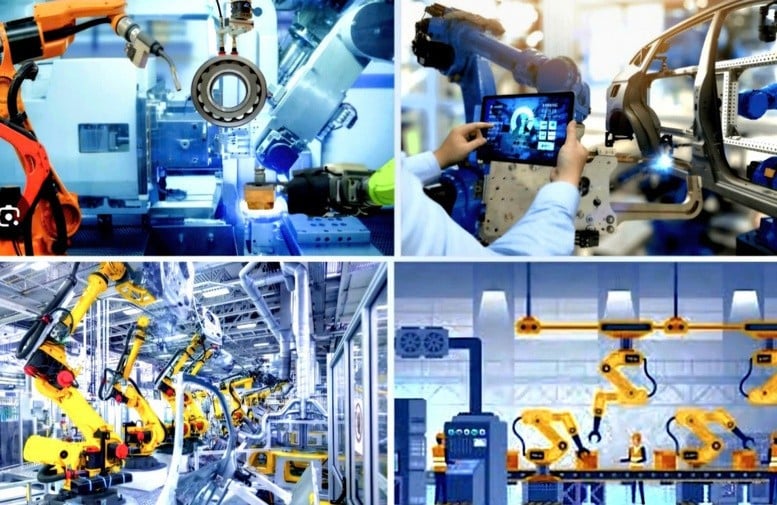
The Government has just issued Resolution No. 71/NQ-CP amending and updating the Government's Action Program to implement Resolution No. 57-NQ/TW dated December 22, 2024 of the Politburo on breakthroughs in science and technology development, innovation and national digital transformation.
The objective of the Action Program is to institutionalize and fully implement the viewpoints, goals, tasks and solutions set out in Resolution No. 57-NQ/TW dated December 22, 2024 of the Politburo on breakthroughs in science, technology, innovation and national digital transformation (Resolution No. 57-NQ/TW).
At the same time, identify specific tasks for ministries, branches and localities to develop action plans, organize implementation, inspect, supervise and evaluate the implementation of Resolution No. 57-NQ/TW, realizing the goal of making science, technology, innovation and national digital transformation the top important breakthrough, the main driving force to rapidly develop modern productive forces, perfect production relations, innovate national governance methods, develop the economy - society, prevent the risk of falling behind, and bring the country to breakthrough development and prosperity in the new era.
In order to achieve the goals set out in Resolution No. 57-NQ/TW, the Government requires that in the coming time, in addition to regular tasks, ministries, ministerial-level agencies, government agencies, and People's Committees of provinces and centrally run cities need to specify and organize the implementation of the following tasks:
1- Raising awareness, making breakthroughs in innovative thinking, determining strong political determination, resolutely leading and directing, creating new momentum and new spirit in the whole society in developing science, technology, innovation and national digital transformation.
Build and promote the national brand of innovation; build a digital platform and digital tools to measure online the level of completion of digital transformation tasks; develop a plan to implement the Government's action program with specific quantified goals; assign responsibilities to heads of units directly in charge and direct; strive to arrange the proportion of officials with expertise and experience in science and technology in the leadership team of each state agency and unit, aiming to reach at least 25%.
Review and amend regulations on encouraging and protecting dynamic, creative cadres who dare to think, dare to do, dare to take responsibility for the common good in the direction of supplementing and adjusting to promote the spirit of creativity, dare to think, dare to do, dare to take responsibility of the team of cadres, civil servants and public employees in developing science, technology, innovation and digital transformation in the spirit of Resolution No. 57-NQ/TW...
2- Urgently and resolutely perfect institutions; eliminate all ideas, concepts, and barriers that are hindering development; turn institutions into a competitive advantage in developing science, technology, innovation, and digital transformation.
Review and remove institutional and policy bottlenecks and barriers in the development of science, technology, innovation, digital transformation and high-quality human resources; perfect legal regulations to ensure a legal corridor for the operations of all sectors and fields in the digital environment.
Amending legal regulations to remove bottlenecks in science, technology and innovation activities towards accepting risks, risky investments and delays in scientific research, technology development and innovation. Amending the Law on Science and Technology (2013) and related laws in the project to develop the Law on Science, Technology and Innovation to: (i) Remove difficulties and obstacles, create a favorable legal corridor to promote science, technology and innovation; (ii) Simplify administrative procedures, promote decentralization and delegation of power in state management; (iii) Focus investment resources from the state budget, attract non-budgetary investment for science, technology and innovation.
Supplement policies to remove bottlenecks and complete the Law on Digital Technology Industry; review and arrange the organization, functions, tasks and powers of state agencies from central to local levels to ensure unity and improve the effectiveness of state management of science, technology, innovation and digital transformation...
3- Increase investment and improve infrastructure for science, technology, innovation and national digital transformation.
Develop a network connecting innovation centers, creative startups, focusing on strategic technologies and digital transformation. Implement programs and projects to promote key technology and innovation fields of the National Innovation Center. Strive to have at least 05 projects and programs in the fields of semiconductors, artificial intelligence, digital technology, smart factories, smart cities, etc. implemented by 2030.
Develop and implement the Program for developing the digital economy and digital society with specific quantified goals; develop mechanisms and policies to support and encourage organizations, individuals, and businesses to invest in and build laboratories, research centers, and science and technology development; pilot the deployment of digital copies for a number of centrally-run cities.
Building the Internet of Things (IoT) industry and a number of specialized industrial parks developing IoT; Digitally transforming industrial parks and industrial clusters towards enhancing the application of the Internet of Things (IoT) to become smart industrial parks and industrial clusters; Promoting and developing a number of industries and fields applying the Internet of Things (IoT) industry such as manufacturing, trade, energy, agriculture, transportation, healthcare, etc.
4- Develop and utilize high-quality human resources and talents to meet the requirements of science, technology development, innovation and national digital transformation.
Synchronously implement solutions to enhance STEM education and career guidance, attract excellent students to study STEM majors; develop and implement policies to detect and nurture STEM talents early, plan and invest in upgrading and expanding the system of specialized schools and gifted schools in natural sciences.
Implement training programs for talented engineers, masters and doctors in basic sciences, key engineering and technology fields to serve strategic technology development; training programs, retraining of technicians, high-quality vocational training, meeting the requirements of applying new and high technologies. Focus on investing in building a number of universities, advanced training centers specializing in artificial intelligence and other strategic technology fields.
Innovate training programs, diversify training methods for STEM majors; build an online education and training platform according to international standards, develop a digital university education model combining the application of advanced technologies such as artificial intelligence and virtual space.
Review and develop policies to attract, recruit and reward digital transformation human resources, specialized forces to ensure network safety and security working in state agencies, ensuring sufficient quantity and quality, suitable for specific fields, regions, etc.
5- Promote digital transformation, application of science, technology, and innovation in the operations of agencies in the political system; improve the effectiveness of national governance, the effectiveness of state management in all fields, and ensure national defense and security.
Promote the application of science and technology to build scientific foundations to support decision-making in the operations of state management agencies; build a model of a smart monitoring and control center to strengthen public management, improve governance effectiveness and operational efficiency of all levels of government.
Improve the quality of online public service provision throughout the process; provide new personalized, data-based digital services to people and businesses; minimize administrative procedures, processing time, and administrative procedure compliance costs; comprehensively innovate the handling of administrative procedures, and implement administrative procedures regardless of administrative boundaries; strengthen direction, supervision, and assessment of service quality for people and businesses in implementing administrative procedures and public services based on data and accountability of state agencies and competent persons in serving the people.
Promote digital transformation in the cultural sector to develop the cultural industry. Build and develop high-quality digital cultural products; encourage and attract a large community to participate in creating and producing positive, healthy and benevolent digital cultural products in the digital environment...
6- Strongly promote science, technology, innovation and digital transformation activities in enterprises.
Review and develop incentive policies to encourage businesses, especially small and medium enterprises, cooperatives, and business households, to invest in digital transformation, research, application of science, and technological innovation to improve production, business, and corporate governance efficiency.
Organize the implementation of solutions to promote knowledge transfer, training of scientific and technological human resources, and innovation through foreign direct investment (FDI) enterprises; develop solutions to support domestic technology enterprises to invest abroad.
Develop regulations on establishing research facilities for digital technology and digital transformation policies in enterprises to research, apply, and cooperate in transferring modern digital technology achievements from abroad to the country; establish research facilities for digital technology policies and transfer modern digital technology achievements from abroad to the country.
Develop mechanisms and policies to support digital technology enterprises, organizations and individuals with capacity to carry out key tasks on digital transformation; support policies to develop digital technology enterprises to exploit the domestic digital transformation market to reach out to the world; promote the development of small and medium enterprises...
7- Strengthen international cooperation in science, technology development, innovation and digital transformation.
Promote multilateral and bilateral international cooperation with countries, territories, multinational corporations with advanced science, technology, and digital transformation capabilities, international organizations, and the world's leading research institutes in science, technology, and innovation; promote technological diplomacy, attract external resources, contribute to ensuring economic security, and enhance technological autonomy.
Actively and proactively participate in shaping frameworks, rules, and governance on science, technology, innovation, and digital transformation in multilateral cooperation mechanisms; study the possibility of participating in new cooperation mechanisms and initiatives on science, technology, innovation, and digital transformation.
Develop a project for Vietnam to proactively participate in international standardization organizations. Have a mechanism to build a team of experts to participate in leadership positions of international standardization organizations, participate in technical standards committees of a number of fields related to strategic technology development...
Approval of the Project "Developing Hanoi Medical University into a national key university among the top in Asia"
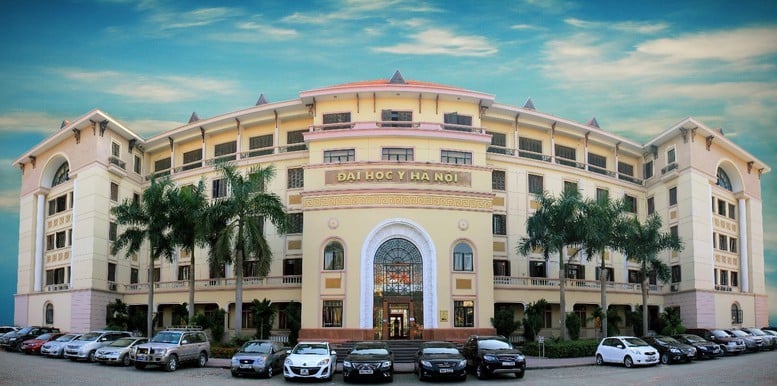
Deputy Prime Minister Le Thanh Long has just signed Decision No. 714/QD-TTg Approved the Project "Developing Hanoi Medical University into a national key university among the top in Asia".
The goal of Project is to develop Hanoi Medical University into a national key university, with prestige on par with leading universities in Asia, playing a core and leading role in training high-quality human resources associated with scientific research, technology development, innovation in the health sector, meeting the increasing care needs of the people.
Build at least 5 affiliated hospitals
The specific goal by 2035 is that Hanoi Medical University will have a training scale of over 20,000 students; training at master's and doctoral levels and equivalent to over 50% of the total enrollment scale.
100% of training programs are recognized for educational quality accreditation by prestigious domestic and international accreditation organizations.
The number of international articles increases by 10% per year, by 2035 achieving the publication of at least 1,000 international articles per year, ensuring a minimum of 0.75 articles/full-time lecturer/year.
Build at least 20 institutes, excellent research centers, and laboratories; gradually master a number of strategic technologies applied in scientific research in the health sector.
By 2035, ensure that each training facility of the School has at least 1 main practice facility. Build at least 5 hospitals under the School that meet international quality standards.
The total number of permanent lecturers is at least 1,700, of which over 70% have doctoral degrees; 30% of lecturers with doctoral degrees are appointed to the title of professor or associate professor; there are at least 500 international students and trainees studying in training programs.
By 2035, Hanoi Medical University will become a university ranked in the top 100 universities in Asia, top 801 - 1000 universities in the world and have at least 02 majors ranked in the top 150 of prestigious international rankings.
By 2050, Hanoi Medical University will be a national key research-oriented university, with a smart and advanced university governance model, among the top universities in Asia, in the top 501-800 universities in the world, and have at least 04 majors ranked in the top 150 of prestigious international rankings.
Expanding scale, improving training quality
To achieve the above goals, the tasks and solutions that Hanoi Medical University will implement are to expand the scale, improve the quality of training; develop science, technology, innovation and digital transformation in healthcare; strengthen conditions to ensure the quality of training, scientific research, medical examination, treatment and disease prevention; improve the capacity of lecturers, researchers, managers and medical human resources and promote international cooperation in training, scientific research, medical examination, treatment and disease prevention.
In particular, expanding the scale of training with industry structure, reasonable training level, focusing on key schools with strengths, focusing on postgraduate training majors, ensuring the quality of training to meet the high quality human resource needs of the labor market.
Develop high quality training programs, training programs with foreign, advanced and international standards. Testing training programs according to national and international standards.
Application of artificial intelligence in research and development of new treatment therapy
Regarding the development of science, technology, innovation and digital transformation in healthcare, Hanoi Medical University will focus on research on infectious and tropical diseases, non-communicable diseases, causes of dangerous epidemics; gene-protein technology, diagnostic technology, treatment methods and preventive measures for emerging diseases, difficult and complicated diseases.
Develop strong research groups; Application of artificial intelligence in research and development of new treatment therapy; Promote technology transfer, develop a business network and companies in the university, commercialize scientific and technological products.
Modernize, upgrade facilities, laboratories
In addition, Hanoi Medical University will strengthen the conditions to ensure the quality of training, scientific research, medical examination, treatment and prevention.
Specifically, the school will expand the area, build new training facilities, laboratories, practice facilities, meet the goals of expanding scale and improve the quality of training; Develop and expand a chain of universities under Hanoi Medical University in Hanoi, Thanh Hoa, Bac Ninh and other provinces and cities.
Modernizing and upgrading facilities, laboratories and practical facilities at the Hanoi Medical University's headquarters for training, scientific research, medical examination, treatment and prevention.
Increasing investment for high -tech applications, modern medical techniques, digital technology, artificial intelligence and large data in management, training, scientific research, medical examination and treatment and prevention.
The conclusion of the Prime Minister Pham Minh Chinh at the Steering Committee meeting on reviewing and removing difficulties and problems related to projects (Steering Committee 1568)
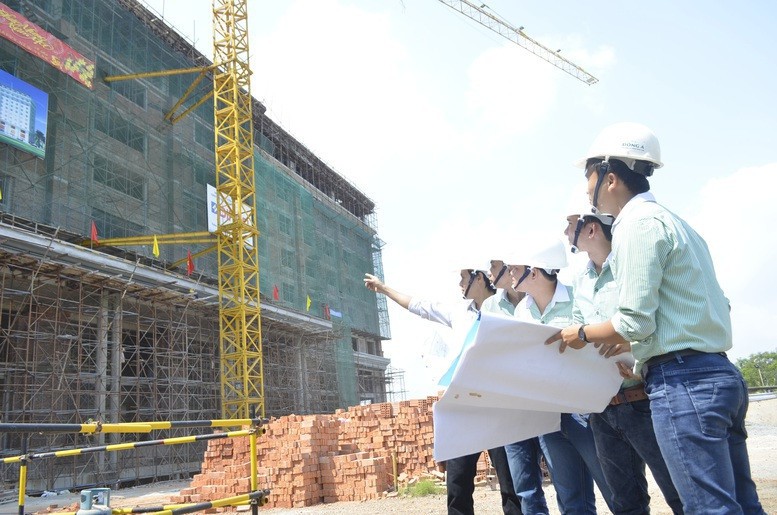
The Government Office issued Notice No. 165/TB-VPCP dated 8/4/2025 conclusions of the Prime Minister Pham Minh Chinh at the Steering Committee meeting on reviewing and removing difficulties and obstacles related to projects (Steering Committee 1568).
The notice of conclusions stated that the Prime Minister noted, highly appreciated and praised the efforts of the Ministry of Finance - the Standing Committee of the Steering Committee; The very positive direction of the Standing Deputy Prime Minister Nguyen Hoa Binh - Head of the Steering Committee 1568 and the active participation of the Steering Committee members; The close and effective coordination of ministries, departments, branches and localities in performing the task of reviewing and removing difficulties and problems related to projects.
The Prime Minister requested ministries, ministerial-level agencies, government agencies, People's Committees of provinces and centrally run cities to continue to closely and responsibly coordinate with Steering Committee 1568 and the Standing Agency (Ministry of Finance) to effectively carry out this important and urgent task. Early resolution of the problem will contribute to mobilizing resources for the economy, achieving double-digit economic growth, creating a clean and green environment, solving employment issues and public and social concerns.
Strengthening Steering Committee 1568
The Prime Minister requested the Ministry of Finance - the Standing Committee of the Steering Committee 1568 to coordinate with the Government Office to complete the draft decision to consolidate the integration of the steering committees with similarities in the functions, tasks and powers into a unified Steering Committee led by the Standing Deputy Prime Minister Nguyen Hoa Binh. On that basis, consolidating the members of the Steering Committee including the Minister, the leaders of the ministries: Agriculture and Environment, the Judicial, Finance, Construction, Industry and Trade, and leaders of ministerial -level agencies, government -attached agencies, central agencies: National Defense, Police, Supreme People's Procuracy, Supreme People's Courts; Urgently complete and develop the working regulations of the Steering Committee (after consolidation), in which assigning specific responsibilities to each ministry and locality in the spirit of "clear people, clear work, clear responsibilities, clear products, time and clear authority".
Building a database system of investment projects with difficulties and problems
The Ministry of Finance shall assume the prime responsibility for, and coordinate with relevant agencies to build a database system of investment projects with difficulties, problems and existence similar to the public investment system to classify problems and causes from which to offer effective feasibility solutions; Update sharing information to ministries according to state management functions to advise the Government and the Prime Minister to solve and solve.
At the same time, the Ministry of Finance urgently synthesizes and classifies projects reported by ministries, branches, agencies and localities according to the direction of the Prime Minister in Official Dispatch No. 26/CD-TTg dated March 31, 2025.
The Prime Minister requested ministries and central agencies to take the lead in developing and completing the submission to the Government for consideration of issuing a Resolution guiding and handling groups of difficulties and problems under the Government's authority (if any) according to their functions and tasks on the basis of common viewpoints and principles to remove difficulties.
Ministries, ministerial-level agencies, agencies attached to the Government and People's Committees of provinces and cities directly under the Central Government urgently implement the Prime Minister's guidance at the Capital No. 26/CD-TTg dated March 31, 2025 on reviewing and reporting investment projects with difficulties, problems and backlogs lasting on the national public investment system and taking responsibility to the Prime Minister and the Prime Minister for the Prime Minister, the Prime Minister of the Prime Minister and the Prime Minister of the Prime Minister and the Prime Minister of the Prime Minister coverage.
Focusing on directing the settlement of ground clearance for projects in accordance with the law, based on ensuring the legal interests of the people, especially the weak, revolutionary merit, strictly handling acts of intentionally violating and opposing disorder and disorder.
Focus on perfecting legal regulations to handle difficulties and problems
The Prime Minister requested solutions to handle difficulties and obstacles in the direction of focusing on fulfilling the legal provisions within the competence in accordance with the regulations as a basis for handling difficulties and obstacles. The removal of difficulties and obstacles for projects under the authority of any agencies, levels, branches and localities, such agencies, levels, branches and localities are responsible for proactively resolving, handling and not avoiding responsibility.
Choosing optimal handling plans on the basis of agreement, analysis and evaluation to ensure interests of stakeholders, minimize disputes, complaints and affect the investment environment and social order. Priority is given to the application of economic, civil, administrative measures first, criminal handling is the final measure.
For the Land Project Group, there are conclusions on inspection, examination, judgments, ministries, central agencies and localities based on the specific policies approved by the National Assembly in Resolution No. 170/QH15/2025 dated April 1, 2025 and No. 171/QH15/2025 dated April 1, 2025, summarizing and proposing the list of projects with similar difficulties and reviews.
For projects with remaining difficulties and problems that do not have legal regulations and cannot be subject to specific mechanisms and policies for projects with similar difficulties and problems in Resolutions No. 170/2024/QH15 dated November 30, 2024 and No. 171/2024/QH15 dated November 30, 2024 of the National Assembly, research and propose to the Government to submit to the National Assembly to resolve the problems.
Do not hide projects with mistakes
The Prime Minister requested that for the group of projects with violations during the implementation process that are difficult to recover, it is necessary to study solutions to remove them based on the actual situation, not to conceal, omit, or take advantage of others, affecting the legitimate rights and interests of enterprises; and to have a deadline to overcome difficulties and obstacles.
For projects under investigation or that have been prosecuted, continue to research, handle and remedy on the basis of discussion and agreement with relevant parties, ensuring that it does not affect the investigation and prosecution process of the case.
Regarding the plan and direction of the 1568 Steering Committee in the coming time, the Prime Minister requested the Steering Committee to proactively urge ministries, central agencies and localities to resolve and remove difficulties and problems related to projects under the authority of ministries, central agencies and localities under the direction of the Prime Minister at the Capital No. 26/CD-TTG dated March 31, 2025.
Continuing to review and classify problems and expected to assign members of the Steering Committee according to the field of state management to study and propose plans and Chief of Staff Steering solutions to solve solutions for projects under the jurisdiction of the National Assembly, the Government and the Prime Minister before April 20, 2025.
Develop a report of the Government Party Committee on the results of the removal of difficulties and obstacles of projects to report to the Politburo (the term before June 15, 2025 at the conclusion at the Central Steering Committee meeting on anti -corruption, waste and negative).
Researching and developing a draft resolution of the National Assembly and the Government (if any) from the above -mentioned perspective and principle, submitting to the competent authorities for consideration and decision.
The conclusion of the Prime Minister Pham Minh Chinh at the visit, working with Bach Mai Hospital on the occasion of the 70th anniversary of the Vietnam Doctor's Day
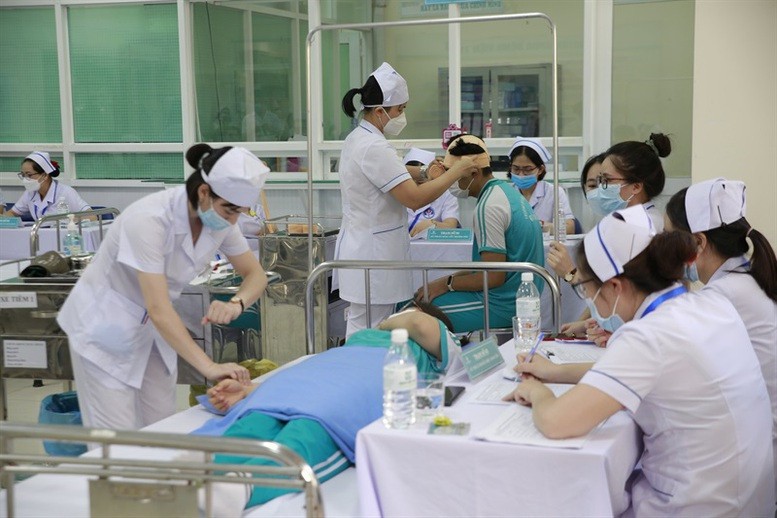
The Government Office has just issued Notice No. 164/TB-VPCP dated April 8, 2025 The conclusion of the Prime Minister Pham Minh Chinh at the visit, working with Bach Mai Hospital on the occasion of the 70th anniversary of the Vietnam Doctor's Day.
The conclusion announcement clearly stated that our Party and State always pay special attention to medical work, protecting and taking care of people's health with the viewpoint: Health is the most valuable asset of human beings; investing in protecting, caring for and improving people's health is investing in development. The health sector needs to continue to perform better the assigned functions and tasks, better meet the requirements of medical examination, treatment, health care, and people's expectations; at the same time, affirm the country's medical capacity in the new era, the era of striving to develop wealth, civilization, and prosperity of the nation.
In the coming time, the Prime Minister requested the Ministry of Health to continue focusing on directing the system of medical facilities from the central to local levels to focus on implementing drastically, synchronously and effectively the tasks and solutions.
In particular, focusing on thoroughly grasping and concretizing the guidelines and policies of the Central Executive Committee, the Politburo, the Secretariat, the National Assembly, Resolution No. 18, 19, 20 Central Conference 6 Session XII on strengthening the protection, care and improvement of people's health in the new situation; It has clearly identified: "Medical profession is a special profession. Health human resources must meet professional and ethical requirements; need to be selected, trained, used and removed specially".
At the same time, urgently review and amend legal provisions to continue solving problems and inadequacies in shopping, bidding, negotiating drug prices, ensuring publicity and transparency in the spirit of ensuring timely and adequate supply at medical facilities, promoting concentrated shopping activities at both national and local levels to continue lowering drug prices, maintaining reasonable drug prices.
In addition, urgently proposing to promulgate specific policies for health workers (including raising the preferential allowances for officials working in public health facilities). Innovating policies for recruiting, training, using and remuneration to attract medical human resources in medical examination and treatment. Encourage officials with professional qualifications to work in remote areas, disadvantaged areas ...
The Prime Minister also requested the Ministry of Health to continue to focus on directing the system of medical facilities from the central to local levels to improve the capacity and effectiveness of preventive medicine and grassroots health care. Promote the strong development of the pharmaceutical industry, medical equipment production, and increase the country's capacity to self-guarantee medicines, medical equipment and supplies.
Strengthen training of medical human resources, especially high quality human resources in the direction of "deep medical document - rich in ethics - good at medicine". Strengthen the application of science and technology, innovate and change the number of health sectors.
Conclusion of the Government Standing Committee on implementing investment in the expressway from Ca Mau city to Dat Mui

The Government Office has just issued Notice No. 166/TB-VPCP dated 08/4/2025 conclusions of the Government Standing Standing on the implementation of high-speed investment from Ca Mau city to Mui Dat.
The conclusion announcement stated that the investment in the construction of the expressway from Ca Mau city to Dat Mui is extremely necessary, as directed by the General Secretary in Notice No. 109-TB/VPTW dated November 20, 2024 of the Central Office, to seamlessly connect the North-South expressway in the East to Dat Mui and Hon Khoai port in Ca Mau province, helping to promote socio-economic development and ensure national defense and security of the Mekong Delta region and the whole country.
Recently, the Prime Minister has directed Ca Mau province and relevant ministries and branches to urgently study the investment plan for the route, striving to start the project in 2025; however, the implementation has been delayed, and there is no consensus on the agency investing in the route.
To invest in the route soon, the Government Standing Committee agreed in principle to assign the Ministry of National Defense to invest in the expressway from Ca Mau city to Dat Mui in accordance with the law on public investment and relevant laws. Assign the Ministry of Finance to preside over and coordinate with the Ministry of Construction, the Ministry of National Defense, the People's Committee of Ca Mau province and relevant agencies to complete the dossier and procedures in accordance with the law, and submit them to the Prime Minister for consideration and decision.
Clearance, guarantee to start the project before September 2, 2025
The People's Committee of Ca Mau Province is responsible for carrying out the project construction and site clearance to ensure the commencement of the above -mentioned highway construction project before September 2, 2025.
The Government Standing Committee assigned the Ministry of Finance to balance the project investment capital in the medium-term public investment plan 2026-2030; Capital for investment and investment in 2025 is taken from the adjustment source from other projects that have not been allocated and from the revenue increase source in 2024, reporting to the competent authority to consider and decide in accordance with the law.
(Notice No. 166/TB-VPCP dated April 8, 2025, replacing Notice No. 161/TB-VPCP dated April 7, 2025 of the Government Office).
Removing obstacles to speed up progress of key transport projects in the South
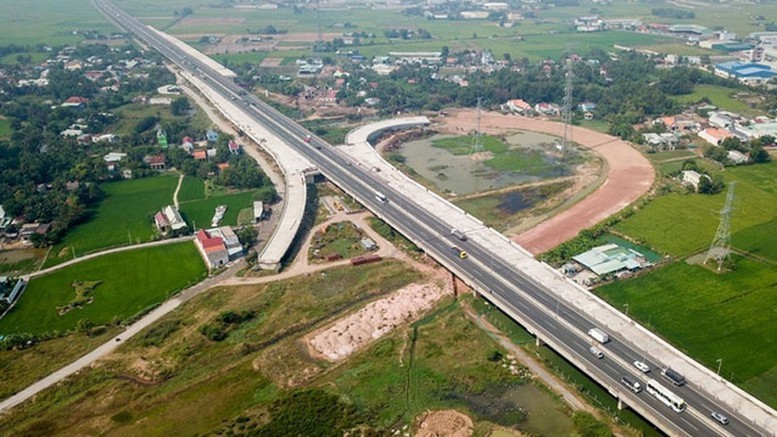
The Government Office has just issued Document 2854/VPCP-CN conveying the direction of Deputy Prime Minister Tran Hong Ha on the recommendations of the Dong Nai People's Committee on accelerating the progress of key transport projects in the South.
Specifically, the Deputy Prime Minister assigned the Ministry of Agriculture and Environment to study the proposal of the Dong Nai People's Committee, urgently complete the dossier of the specific mechanism for the material mines to provide for projects and submit it to the Government before April 15, 2025. At the same time, continue to guide Dong Nai People's Committee to remove difficulties and problems about the procedures for granting materials mining.
The People's Committee of Dong Nai province receives the opinions of the Ministry of Agriculture and Environment, the Ministry of Construction, accelerates the implementation of procedures to supply construction materials for projects in accordance with the regulations and direction of the Government leaders.
The Deputy Prime Minister assigned the Ho Chi Minh City People's Committee and the Vietnam Airport Corporation (ACV) to study and propose the addition of Long Thanh International Airport Project and the Ho Chi Minh City Ring Road Project on the list of projects that apply specific mechanisms and policies on mineral exploitation as ordinary construction materials.
The People's Committee of Ho Chi Minh City and ACV directs the investor, the contractors to mourn stone materials in accordance with the ability has been allocated by the People's Committee of Dong Nai Province; In case of not using the stone material source at the allocated mines, it is necessary to promptly propose Dong Nai province to coordinate to other projects in need; To be fully responsible for not mobilizing the right volume allocated by the People's Committee of Dong Nai Province./.
Source: https://baolangson.vn/chi-dao-dieu-hanh-cua-chinh-phu-thu-tuong-chinh-phu-ngay-8-4-2025-5043500.html


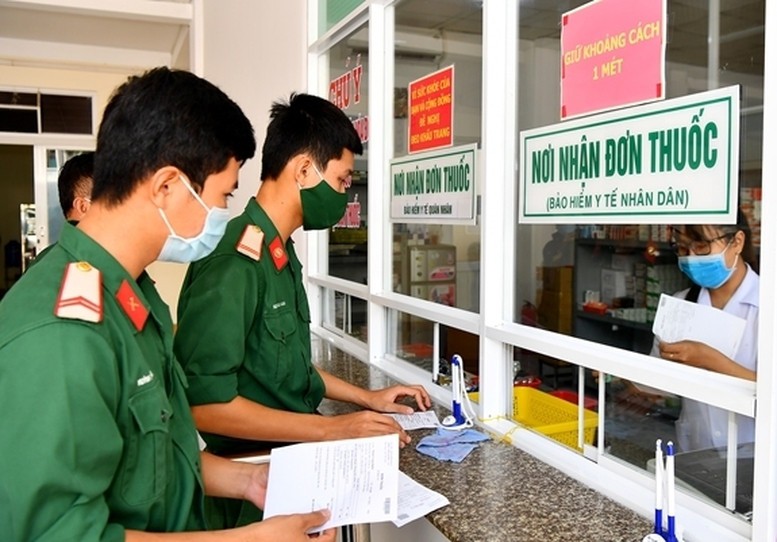
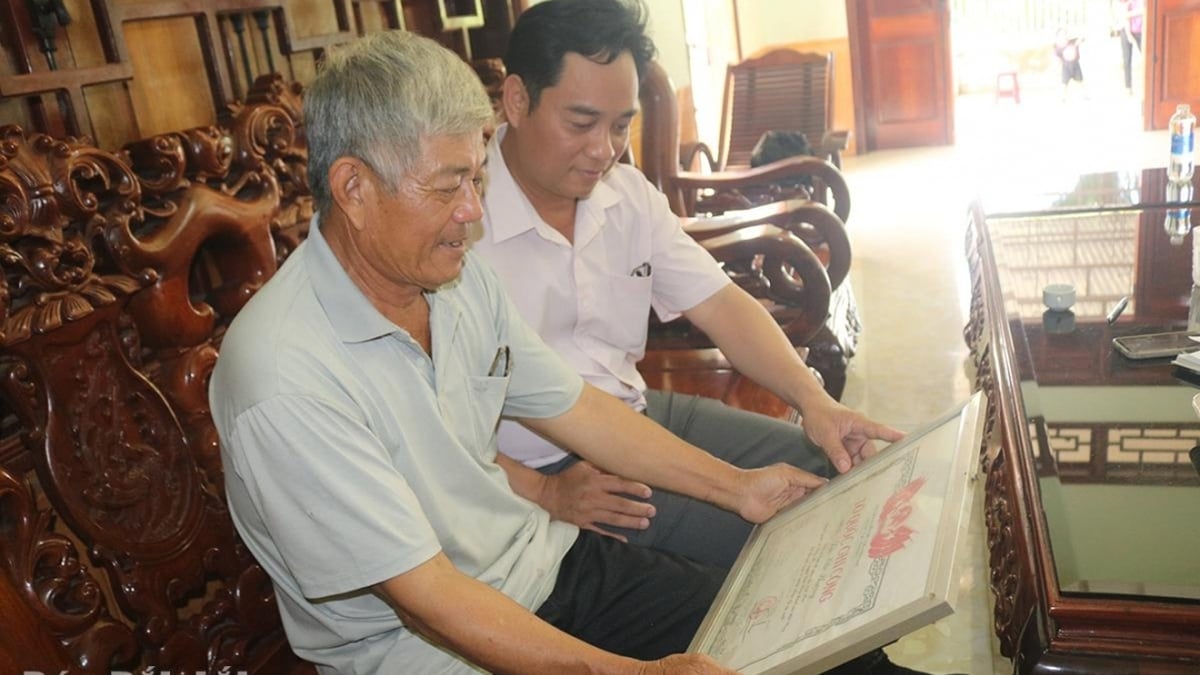
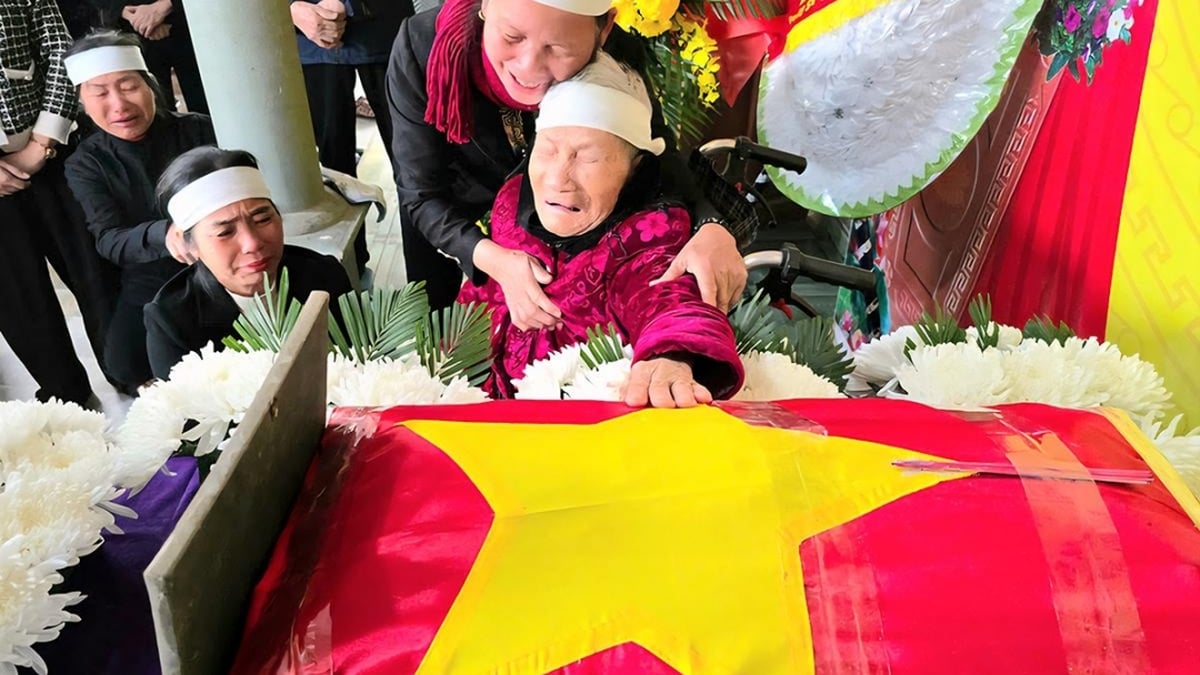
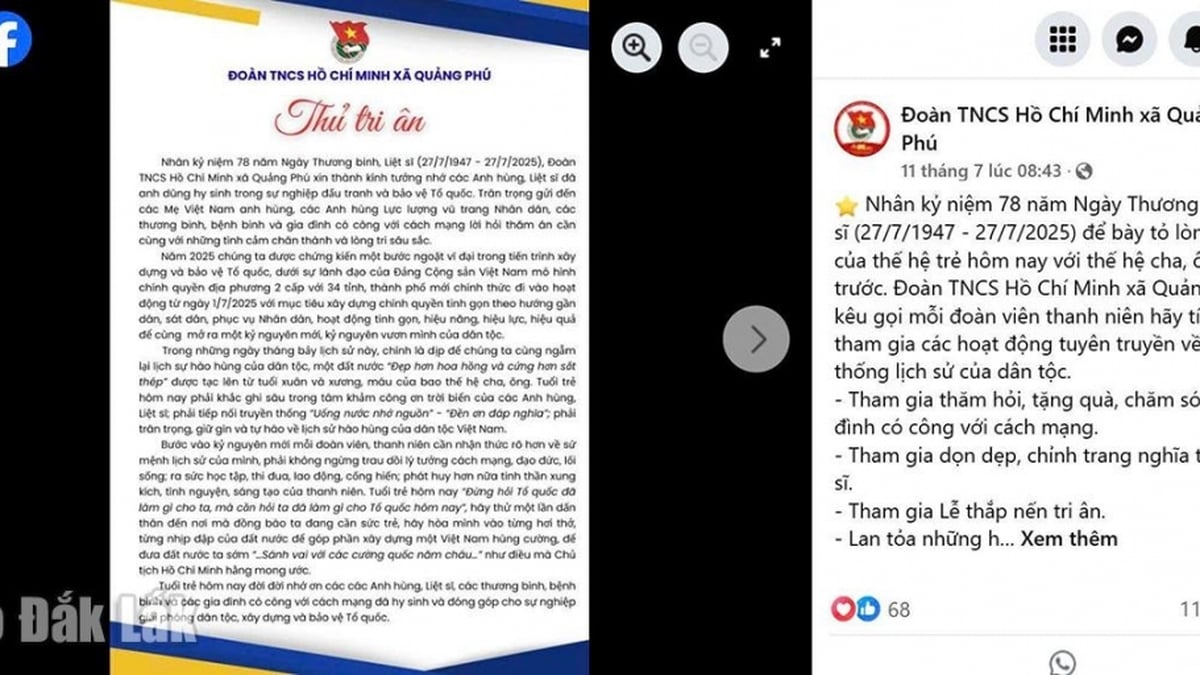
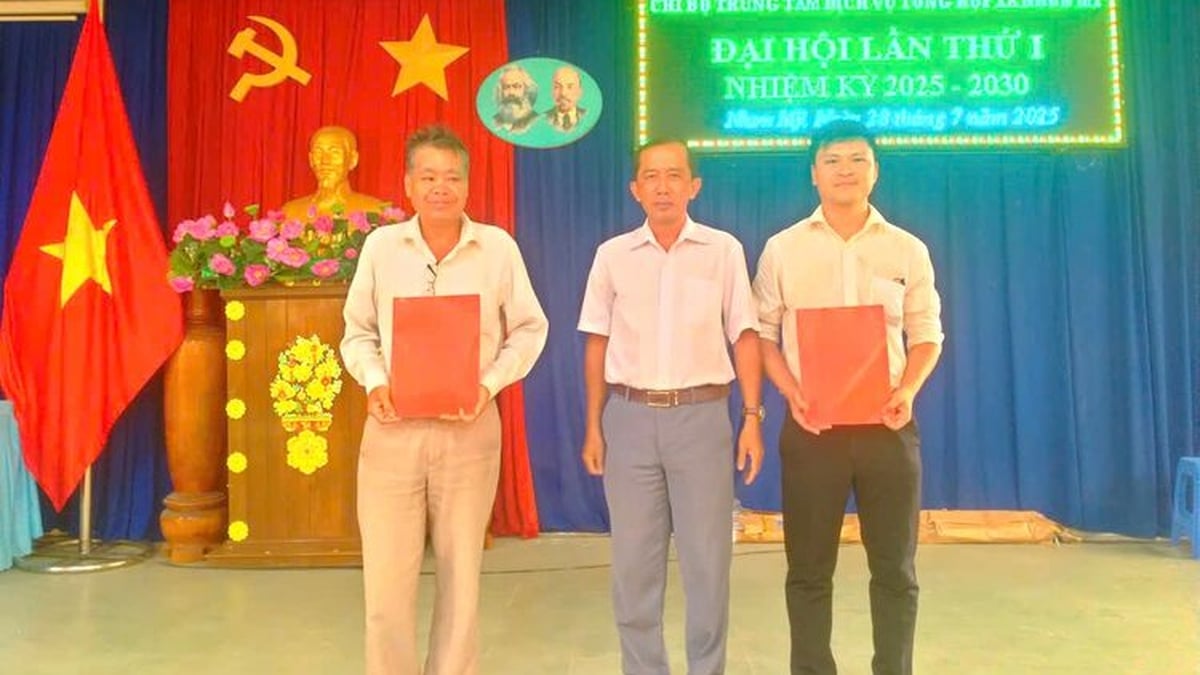
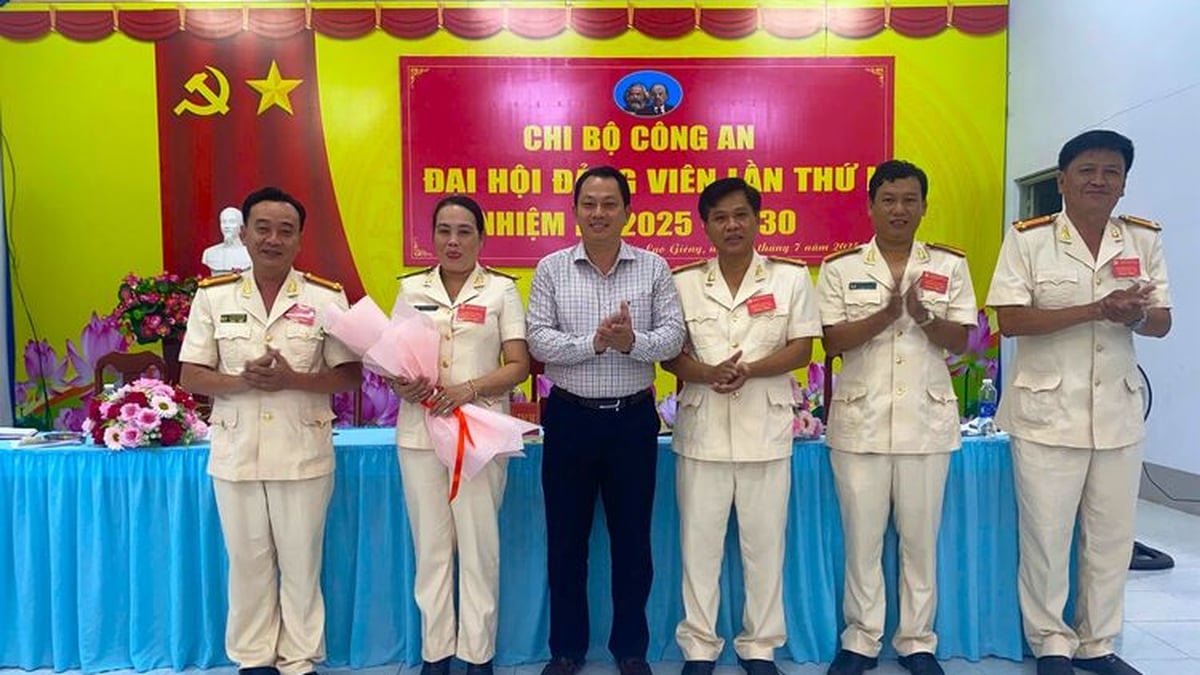
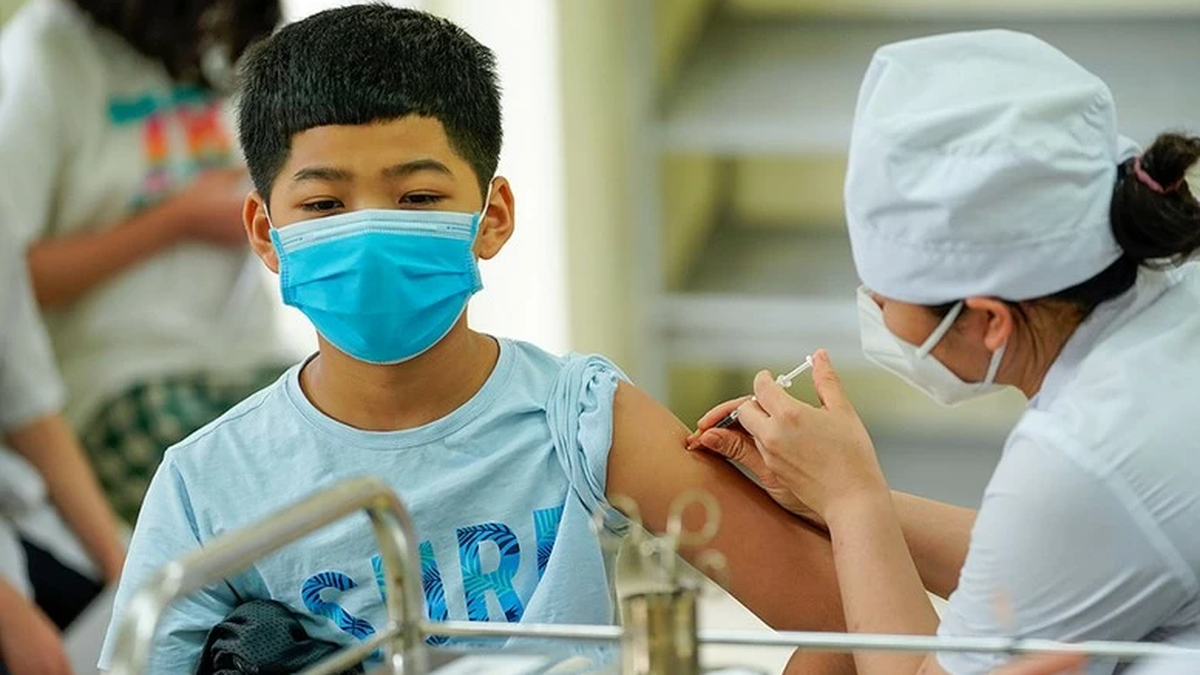
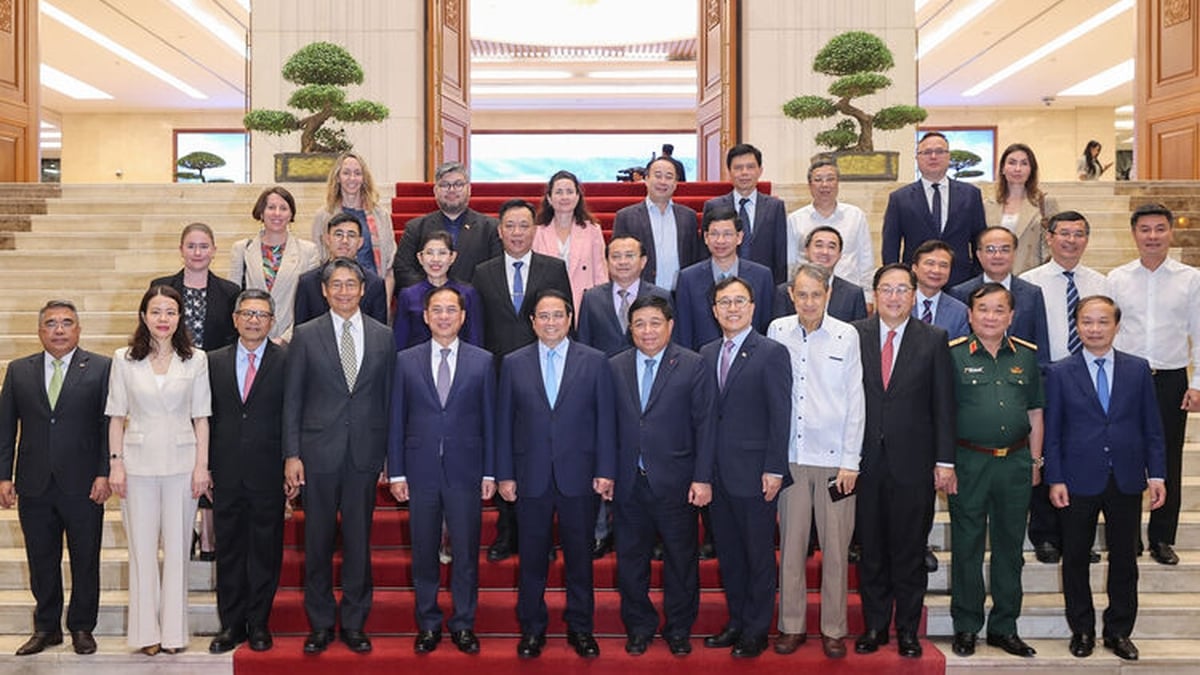
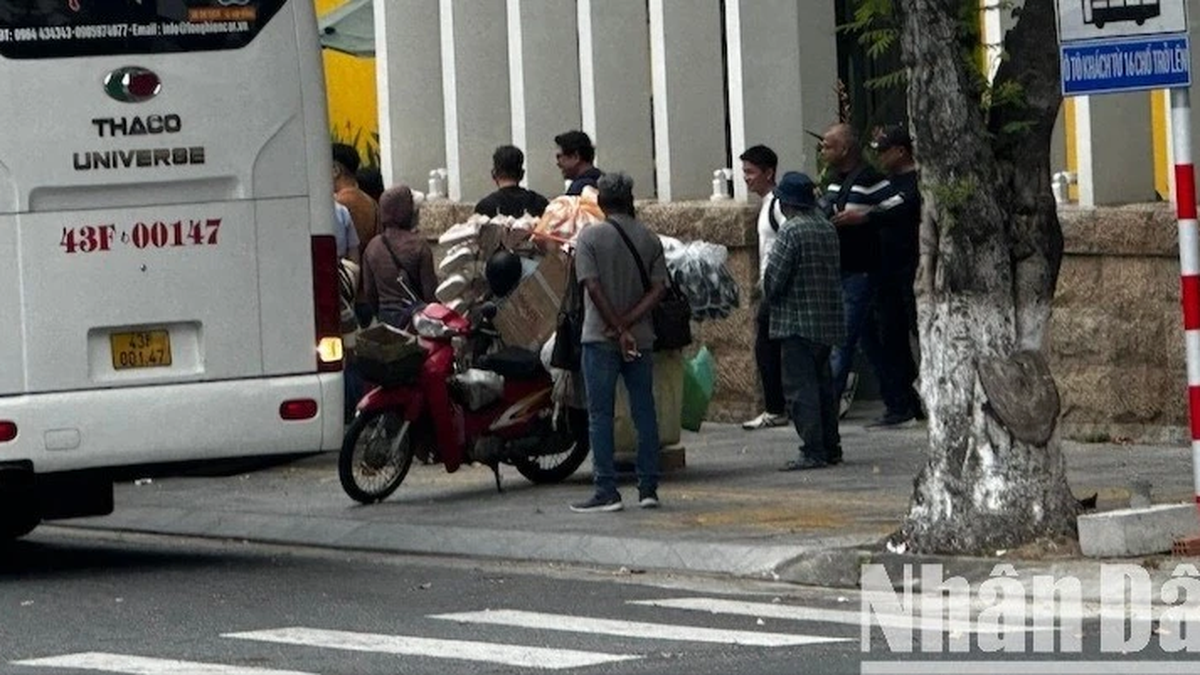

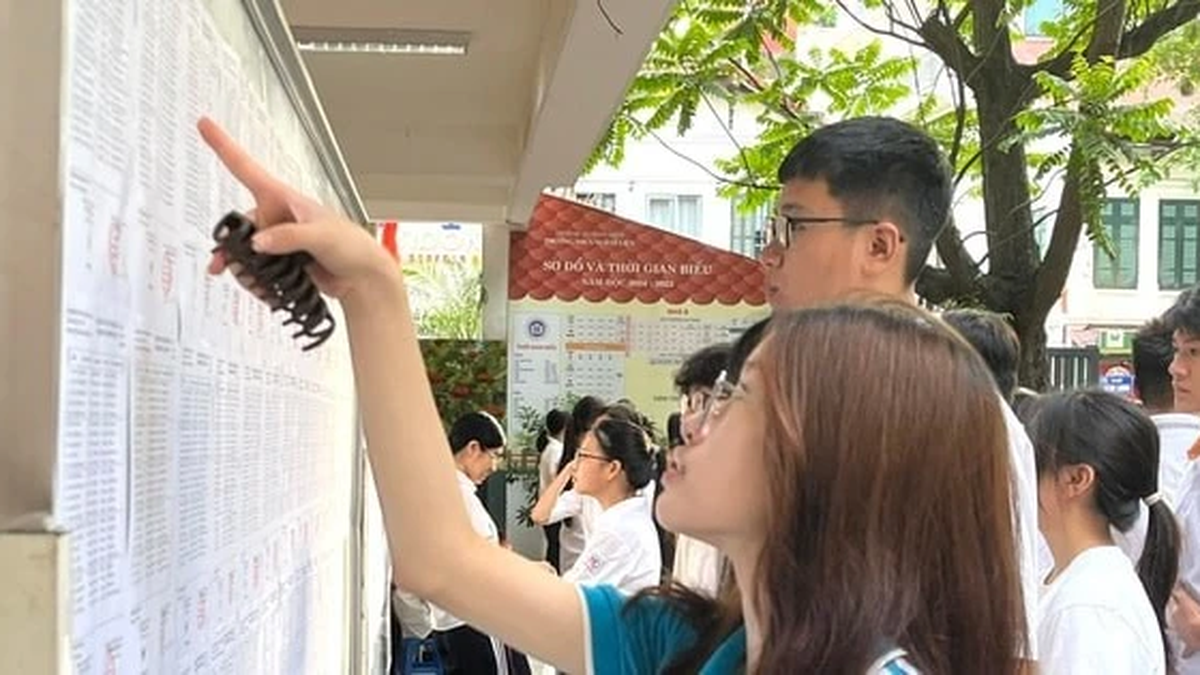


















![[Photo] National Assembly Chairman attends the seminar "Building and operating an international financial center and recommendations for Vietnam"](https://vphoto.vietnam.vn/thumb/1200x675/vietnam/resource/IMAGE/2025/7/28/76393436936e457db31ec84433289f72)





































































Comment (0)